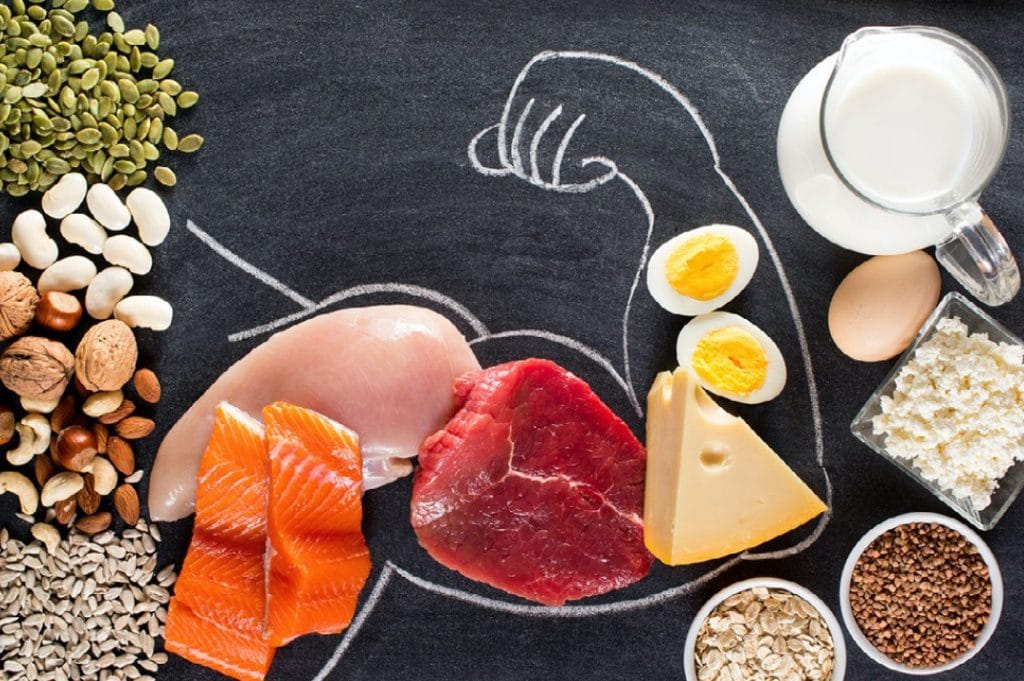Testosterone, often referred to as the “male hormone,” plays a crucial role in a person’s overall health, vitality, and well-being. It affects everything from muscle mass and bone density to mood and sexual function. While testosterone levels naturally decline with age, there are various ways to boost testosterone naturally and maintain optimal levels. In this comprehensive guide, we’ll explore the science-backed strategies for increasing testosterone levels without resorting to synthetic hormones or risky treatments.
Understanding Testosterone
Before diving into strategies to boost testosterone, it’s essential to have a basic understanding of what testosterone is and its role in the body.
What is Testosterone?
Testosterone is a hormone primarily associated with males, although it’s present in both men and women. It’s produced primarily in the testes in men and in smaller quantities in the ovaries and adrenal glands in women. Testosterone plays a vital role in various aspects of health, including the development of male sexual characteristics, muscle and bone health, mood regulation, and sexual function. In men, it’s responsible for deepening the voice, facial and body hair growth, and the development of the male reproductive organs.
The Importance of Testosterone
Testosterone is essential for overall well-being. It affects muscle mass, bone density, red blood cell production, and fat distribution. It also influences libido and sexual function, mood, cognitive function, and energy levels. In men, it’s crucial for maintaining reproductive health and fertility.
Factors Affecting Testosterone Levels
Numerous factors can affect testosterone levels, including age (as testosterone tends to decline with age), genetics, medical conditions, and lifestyle choices. Factors like poor diet, lack of exercise, high stress levels, and exposure to endocrine-disrupting chemicals can contribute to low testosterone levels.
The understanding of what testosterone is and its importance sets the stage for exploring how to naturally boost and maintain optimal testosterone levels.
Lifestyle Changes
Diet and Nutrition
The Impact of Macronutrients: A balanced diet with the right macronutrient composition is essential for optimal testosterone levels. Adequate protein intake supports muscle development, while healthy fats and carbohydrates provide energy. Balancing these macronutrients is crucial.
Essential Micronutrients: Certain vitamins and minerals, like vitamin D, zinc, magnesium, and vitamin K2, are vital for testosterone production. Deficiencies in these nutrients can negatively impact hormone levels.
Foods that Promote Testosterone Production: Foods like lean meats, fish, eggs, nuts, seeds, and leafy greens contain nutrients that support testosterone production. Including these foods in your diet can be beneficial.
Foods to Avoid: Processed foods, sugary beverages, and excessive alcohol consumption can have a detrimental effect on hormone balance. Reducing or eliminating these from your diet is advisable.

Exercise and Physical Activity
Resistance Training: Strength training exercises, such as weightlifting, stimulate muscle growth and can lead to increased testosterone production. Compound exercises like squats, deadlifts, and bench presses are particularly effective.
High-Intensity Interval Training (HIIT): HIIT workouts involve short bursts of intense exercise followed by brief recovery periods. They can help boost testosterone and improve overall fitness.
Cardiovascular Exercise: Incorporating regular cardiovascular workouts like running or cycling can help manage body fat, which in turn can support healthy testosterone levels.
Rest and Recovery: Sufficient rest between workouts is essential for recovery and hormone balance. Overtraining can lead to increased cortisol levels, which can suppress testosterone.

Sleep and Stress Management
Sleep’s Role in Testosterone Production: Getting quality sleep is crucial for hormone regulation. Aim for 7-9 hours of uninterrupted sleep per night to support healthy testosterone levels.
Stress and Cortisol: Chronic stress can lead to elevated cortisol levels, which can inhibit testosterone production. Stress management techniques like meditation, yoga, or deep breathing exercises can be helpful.
Supplements and Natural Remedies
Vitamins and Minerals
Vitamin D: Adequate vitamin D levels are associated with higher testosterone levels. Exposure to sunlight and dietary sources like fatty fish and fortified foods can help.
Zinc: Zinc is a critical mineral for testosterone production. Foods like lean meats, nuts, and seeds are rich in zinc.
Magnesium: Magnesium supports muscle function and can help with testosterone production. Sources include leafy greens, nuts, and whole grains.
Vitamin K2: This vitamin plays a role in bone health and may indirectly impact testosterone production. Sources include leafy greens and fermented foods.
Herbal Supplements
Ashwagandha: An adaptogenic herb, ashwagandha, may help reduce stress and cortisol levels, potentially supporting healthy testosterone levels.
Tribulus Terrestris: This herb is sometimes used as a natural testosterone booster, although scientific evidence is mixed.
Fenugreek: Fenugreek seeds contain compounds that may help improve testosterone levels, particularly in resistance-trained individuals.
Tongkat Ali: Also known as Longjack, this herb is believed to boost testosterone levels, but more research is needed.

Fatty Acids
Omega-3 Fatty Acids: These healthy fats, found in fatty fish and flaxseeds, may help reduce inflammation and support overall hormonal balance.
Saturated and Monounsaturated Fats: These fats are essential for hormone production. Sources include olive oil, avocados, and coconut oil.
Hormone Balance
Managing Estrogen
The Role of Estrogen in Men: While typically associated with women, men also have small amounts of estrogen. An imbalance between estrogen and testosterone can lead to hormonal issues in men. Managing estrogen levels involves reducing exposure to estrogen-like compounds in the environment and diet.
Estrogen-Blocking Foods and Supplements: Certain foods and supplements, like cruciferous vegetables (e.g., broccoli, cauliflower), may help regulate estrogen levels by promoting its metabolism and elimination.
Balancing Cortisol
Stress Reduction Techniques: High stress levels lead to increased cortisol production, which can suppress testosterone. Techniques like mindfulness meditation, yoga, and deep breathing exercises can help manage stress and lower cortisol levels.
Adaptogenic Herbs: Herbs like Rhodiola rosea and holy basil are considered adaptogens, which can help the body adapt to stress and potentially lower cortisol levels.
Avoiding Endocrine Disruptors
Environmental Toxins
Xenoestrogens: These are synthetic compounds that mimic estrogen in the body. They are found in various products, including plastics (BPA), pesticides, and industrial chemicals. Reducing exposure to these substances is crucial for hormonal health.
Chemicals in Personal Care Products: Many personal care products contain endocrine-disrupting chemicals, such as parabens and phthalates. Opting for natural or organic alternatives can help mitigate exposure.
Pesticides and Herbicides: Consuming organic foods and washing fruits and vegetables thoroughly can reduce exposure to pesticides and herbicides that may disrupt hormones.
Dietary Toxins
Phytoestrogens: These are natural compounds found in some foods, like soy and flax, that can have estrogen-like effects. While they’re generally considered safe, moderation is key, especially for individuals with hormone imbalances.
BPA and Phthalates: Avoiding plastics with BPA and phthalates, such as using glass or stainless steel containers instead of plastic ones, can help reduce exposure to these chemicals.
Heavy Metals: Some heavy metals, like lead and cadmium, can disrupt hormone function. Eating a balanced diet and avoiding contaminated water sources can minimize exposure.

Lifestyle and Behavioral Changes
Alcohol and Tobacco
The Impact on Testosterone: Excessive alcohol consumption and tobacco use can negatively affect testosterone levels. Reducing or quitting these habits can have a positive impact on hormonal balance.
Moderation and Quitting: If quitting alcohol or tobacco is challenging, moderation and seeking support from healthcare professionals or support groups can be helpful.
Weight Management
Obesity and Testosterone: Excess body fat, particularly visceral fat, can lead to hormonal imbalances, including lower testosterone levels. Maintaining a healthy weight through diet and exercise is essential.
Sustainable Weight Loss: Crash diets or extreme exercise routines can stress the body and potentially lower testosterone levels. Sustainable weight loss strategies that focus on long-term health are more effective.
The Mind-Body Connection
Mental Health
Depression and Anxiety: Mental health issues can affect hormone balance. Seeking treatment for conditions like depression and anxiety can indirectly support healthy testosterone levels.
Mindfulness and Meditation: These practices can reduce stress, improve mood, and indirectly support hormonal balance.
Sexual Health
Erectile Dysfunction: Erectile dysfunction can be related to hormonal imbalances. Maintaining overall health and addressing any sexual health concerns with a healthcare professional is crucial.
Healthy Sexual Practices: Engaging in a healthy and satisfying sexual life can positively influence mood and overall well-being, indirectly benefiting hormonal balance.
Consultation with a Healthcare Professional
While these natural strategies can be effective for many individuals, it’s essential to consult with a healthcare professional, such as an endocrinologist or urologist, if you suspect a hormonal imbalance or have concerns about your testosterone levels.
Conclusion
Boosting testosterone naturally involves making comprehensive lifestyle changes, including dietary modifications, regular exercise, stress management, and avoiding endocrine disruptors. While these strategies can help many individuals optimize their testosterone levels, it’s crucial to approach testosterone enhancement with patience and commitment. Always consult with a healthcare professional for personalized guidance and monitoring. By incorporating these science-backed strategies into your daily life, you can support your overall health and well-being while naturally boosting testosterone levels.








